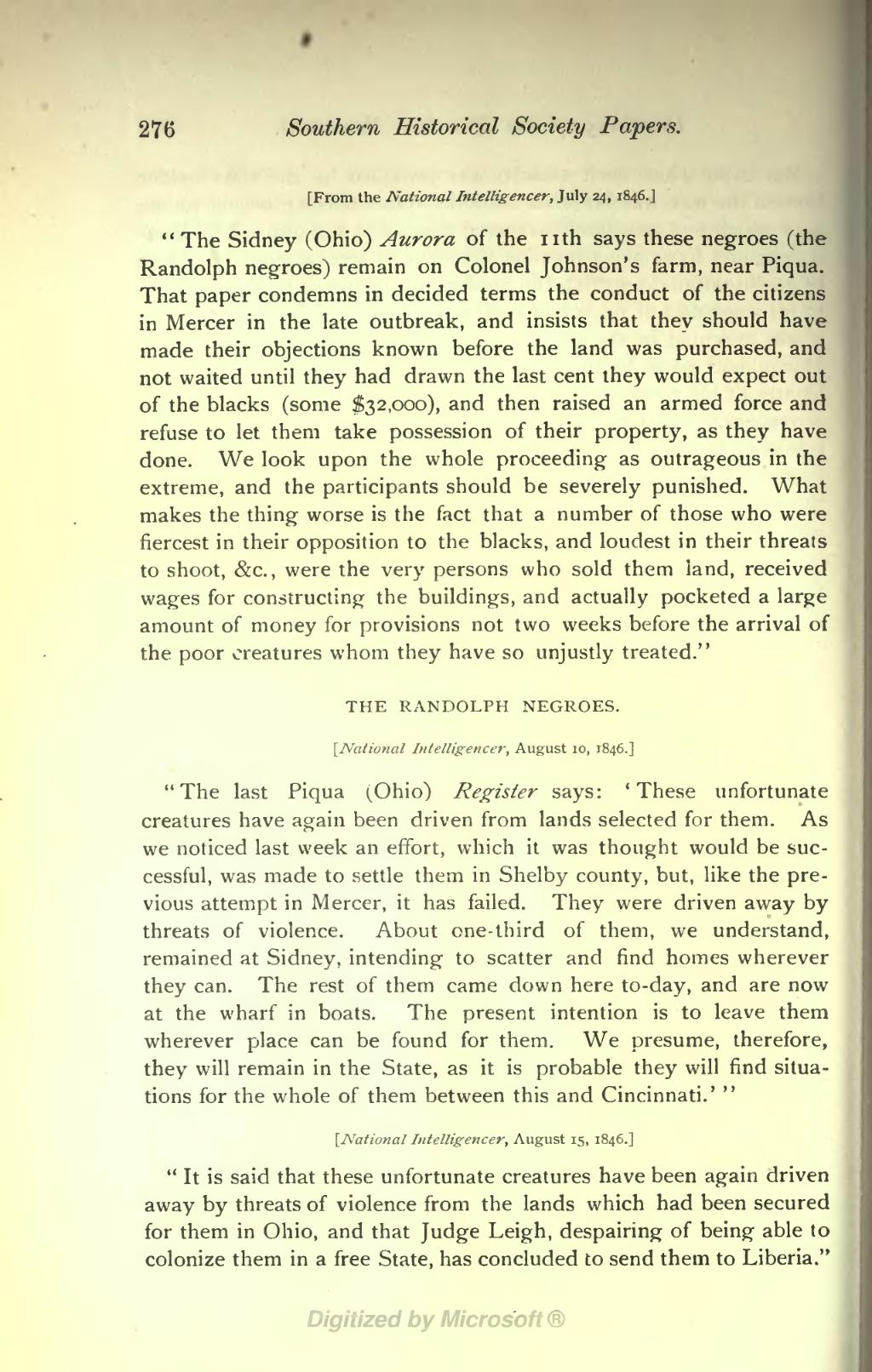276 Southern Historical Society Papers.
[From the National Intelligencer, July 24, 1846.]
" The Sidney (Ohio) Aurora of the nth says these negroes (the Randolph negroes) remain on Colonel Johnson's farm, near Piqua. That paper condemns in decided terms the conduct of the citizens in Mercer in the late outbreak, and insists that they should have made their objections known before the land was purchased, and not waited until they had drawn the last cent they would expect out of the blacks (some $32,000), and then raised an armed force and refuse to let them take possession of their property, as they have done. We look upon the whole proceeding as outrageous in the extreme, and the participants should be severely punished. What makes the thing worse is the fact that a number of those who were fiercest in their opposition to the blacks, and loudest in their threats to shoot, &c. , were the very persons who sold them land, received wages for constructing the buildings, and actually pocketed a large amount of money for provisions not two weeks before the arrival of the poor creatures whom they have so unjustly treated."
THE RANDOLPH NEGROES.
{National Intelligencer, August 10, 1846.]
"The last Piqua (Ohio) Register says: 'These unfortunate creatures have again been driven from lands selected for them. As we noticed last week an effort, which it was thought would be suc- cessful, was made to settle them in Shelby county, but, like the pre- vious attempt in Mercer, it has failed. They were driven away by threats of violence. About one-third of them, we understand, remained at Sidney, intending to scatter and find homes wherever they can. The rest of them came down here to-day, and are now at the wharf in boats. The present intention is to leave them wherever place can be found for them. We presume, therefore, they will remain in the State, as it is probable they will find situa- tions for the whole of them between this and Cincinnati.' '
{National Intelligencer, August 15, 1846.]
" It is said that these unfortunate creatures have been again driven away by threats of violence from the lands which had been secured for them in Ohio, and that Judge Leigh, despairing of being able to colonize them in a free State, has concluded to send them to Liberia."
